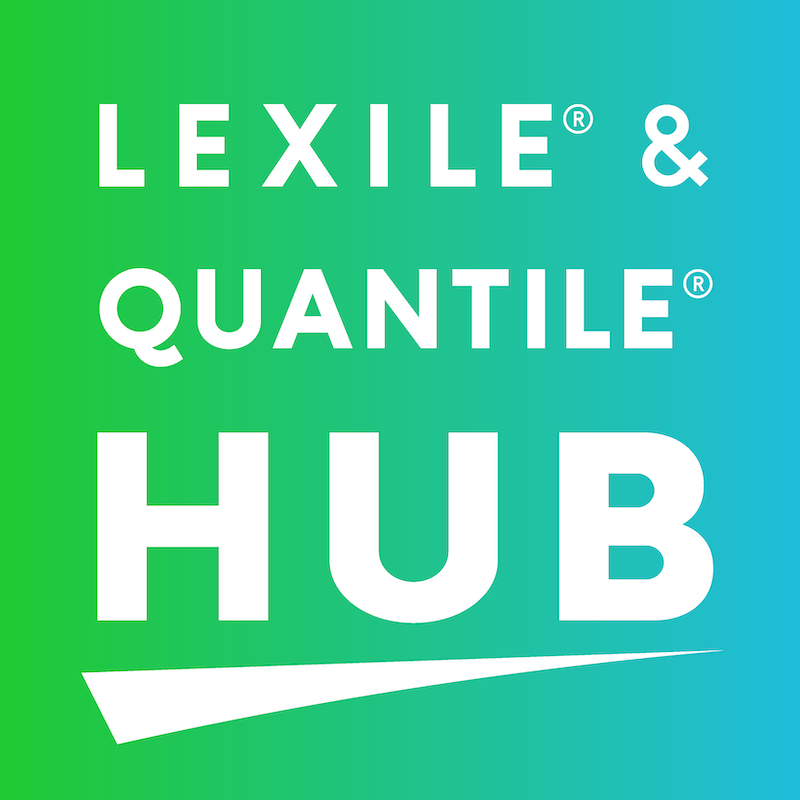 Welcome to the Reading Research Recap!
Welcome to the Reading Research Recap!
I am Dr. Neena Saha, Research Advisor at MetaMetrics and founder and CEO of Elemeno, now a part of MetaMetrics. My focus is to bridge the research-practice gap so that educators can access real-time tools to support reading success. To expand the understanding of research to inform teaching and learning strategies, I put together this monthly compendium of the relevant and must-read research that impacts the reading and learning landscape. I offer research highlights in digestible summary slices. Hopefully, the data and findings you see here are useful to you as researchers, educators, and district and edtech leaders.
New Sight Word Lists & the Society for the Scientific Study of Reading (SSSR) Conference
Sight Words Lists: Time for an Upgrade! 👀
This month I wanted to cover two new research papers with resources for updated sight word lists! Why? Well, I think this quote from the first paper sums it up nicely:
“There is a real need for a new sight word list because existing lists are among the most widely used initial reading instruction resources (Miles et al., 2018) but ironically among the weakest in terms of their research foundations.”
The First Paper: The CPB Sight Words: A New Research-Based High-Frequency Wordlist for Early Reading Instruction
Rationale
- This paper created a new list of sight words based on children’s picture books since, “Picture books are the core text type used by teachers around the world during the transition from oral language to print-based literacy, and in a child’s home literacy environment (Martens et al., 2012).”
Results
- The first 100 words are listed in the paper but you can access their new sight word list via the link at the end of the paper, also copied here.
- They even have a nice table showing how the sight words can be integrated into a phonics instructional sequence!
The Second Paper: Reexamining the Dolch Basic Sight Word List: Contemporary Considerations for Culturally Sustaining Approaches to Assess Sight Word Development
Rationale
- Instead of using picture books, this set of researchers developed a new sight word list based on contemporary books (NYT bestsellers).
Results
- They found discrepancies between the Dolch Basic Sight Word List and a new sight word list (in the appendix of the paper). They also found differences between the words on the Dolch list and words found in works by authors of color.
- They claim that using the Dolch list “…to assess students’ sight word recognition is an inaccurate reflection of today’s contemporary texts and particularly those texts written by diverse authors.”
Practical Implications for Teachers
You may want to consider using newer, updated lists of sight words. Hopefully, these new lists can help with instructional planning for the upcoming school year!
- View a new list of sight words based on children’s picture books.
- Access a new list of sight words based on NYT Bestsellers within the research paper (open-access link).
Society for the Scientific Study of Reading (SSSR) Conference
If you’re interested in brand new research from SSSR (a reading conference) that just happened in Copenhagen, be sure to watch the video blog (embedded above) or on YouTube for my coverage featuring research highlights from:
- Dr. Tim Odegard on false alarm rates in universal screeners.
- Dr. Suzanne Adlof on a new universal language screener.
- Dr. Kristin McMaster on a new inference program for Kindergarteners.
- Dr. Holly Lane on successful implementation.
- Dr. Devin Kearns on Decodable vs. Leveled Texts. This one might surprise you!
Teacher Knowledge, Attitudes, Professional Development
- Pushing Past the Paywall: Accessing Open Peer-Reviewed Research This one is cool!
- Analyzing Tasks That District Leaders Undertake to Guide Primary-Level Reading Programming at the Site and District Level (Dissertation, not yet peer-reviewed)
- Build it and they will come: responses to the provision of online science of language and reading professional learning
- Factors Associated with Teacher Wellbeing: A Meta-Analysis
- Unpacking Implementation Fidelity and Barriers to Implementation of a Kindergarten Reading Intervention by Teachers
- Preventing Reading Problems: The application of an assessment-driven, classroom-based intervention in Texas schools
- Teachers’ Beliefs About Language Diversity and Multilingual Learners: A Systematic Review of the Literature
- The Relationship Between AIM Pathways Professional Development, Teachers’ Sense of Efficacy for Literacy Instruction, and Literacy Knowledge, Among K-3 Teachers (Dissertation, not yet peer-reviewed)
- Easing the Implementation of Science of Reading-Based Instructional Approaches in Elementary Literacy Instruction (Dissertation, not yet peer-reviewed)
- Kindergarten Through Third-Grade Teachers’ Perceptions of Implementing the Science of Teaching Reading Practices (Dissertation, not yet peer-reviewed)
- An Instrumental Case Study of Michigan’s Read By Grade Three Law in A Suburban School District (Dissertation, not yet peer-reviewed)
- Perceptions of Literacy Interventionists as Literacy Leaders (Dissertation, not yet peer-reviewed)
Dyslexia, Struggling Readers
- From language to literacy: Understanding dyslexia
- Predictor Importance of Childhood Trauma to Early Literacy Skills in Kindergarteners
- Not Just Phonology: A Longitudinal Study of Dyslexia Subtypes Based on the Distinction Between Reading Accuracy and Reading Rate
- The impact of temporal processing on reading in dyslexia with rapid automatized naming deficits
- The Effects of a Morphological Awareness Intervention on Reading and Spelling Ability of Children With Dyslexia
- The prediction from the network-based attributes of school readiness skills to children’s state-level fluctuations in academic achievement throughout grade school
- In emotion and reading motivation, children with a diagnosis of dyslexia are not just the end of a continuum
- Guessing errors made by children with dyslexia in word and text reading
- The Role of Phonological Decoding on the Reading Skills of Beginning Readers With Reading Disabilities in a Highly Transparent Orthography
- The Effects of an Online Paragraph Text-Writing Intervention for Students with Dyslexia
- Developmental dyslexia genes are selectively targeted by diverse environmental pollutants
- Dyslexia in Many Languages: Insights, Interactions and Interventions (book)
Phonological Awareness, Word Reading, Fluency
- Using Phoneme Discrimination to Help Emergent Bilinguals With Reading Disabilities Acquire New Sounds
- Multisyllabic decoding achievement and relation to vocabulary at the end of elementary school
- Modeling item-level variance of polysyllabic word reading in developing readers: Exploring semantically related child, word, and child-by-word predictors
- Promotive and Protective Effects of Cognitive, Motivational, and Parental Factors on Reading Fluency and Reading Comprehension in Grade 9
- Neural bases of reading fluency: A systematic review and meta-analysis
- A Comparison of Three Reading Programs: The Influence of Instructional Practices on Fluency (Dissertation, not yet peer-reviewed)
- The Reading and Phonological Awareness Skills of Elementary English Language Learners Post COVID-19 Pandemic (Dissertation, not yet peer-reviewed)
Comprehension & Vocabulary
- What Is Important to Measure in Sentence-Level Language Comprehension?
- Reading Begets Reading? Disentangling the Dynamic Interplay Between Reading Competence and Reading Exposure with a Special Focus on Gender Differences
- The effect of modality on reading comprehension of struggling and typical readers in the second and third grades
- Learning to Listen: Changes in Children’s Brain Activity Following a Listening Comprehension Intervention
- What Are the Long-Term Prospects for Children With Comprehension Weaknesses? A Registered Report Investigating Education and Employment Outcomes
- Investigating the Mechanisms Behind Relations Between Academic Language and Reading Comprehension: The Role of Reading Self-Concept and Reading Enjoyment
- The Efficacy of Story Champs for Improving Oral Language in Third-Grade Spanish–English Bilingual Students With Developmental Language Disorder
- Orthographic facilitation of English vocabulary learning in monolingual and bilingual children
- Building a Science of Teaching Reading and Vocabulary: Experimental Effects of Structured Supplements for a Read Aloud Lesson on Third Graders’ Domain-Specific Reading Comprehension
- The smell of paper or the shine of a screen? Students’ reading comprehension, text processing, and attitudes when reading on paper and screen
- The relation between reading and externalizing behavior: a correlational meta-analysis
- Introduction to the 2022 and 2023 special issues for the Association for Reading and Writing in Asia
Writing
- Are Written Syntax Features Related to Writing Quality? An Examination of Spanish and English Compositions by Bilingual Children
- Handwriting Legibility is Related to Spelling Level, but Not to Reading and Spelling Progress
Other
- Assessing the Summer Slump: The Role of Motivation in Reading Achievement (Dissertation, not yet peer-reviewed)

Want to start receiving monthly notifications for this series?
Please register or sign in to your Lexile® & Quantile® Hub account and join our Reading Research mailing list.
 Speaking of the Lexile & Quantile Hub — Exciting news!
Speaking of the Lexile & Quantile Hub — Exciting news!
A completely new version of the Lexile & Quantile Hub will arrive this fall! The redesign features a streamlined user experience and enhanced accessibility to support a range of abilities.

